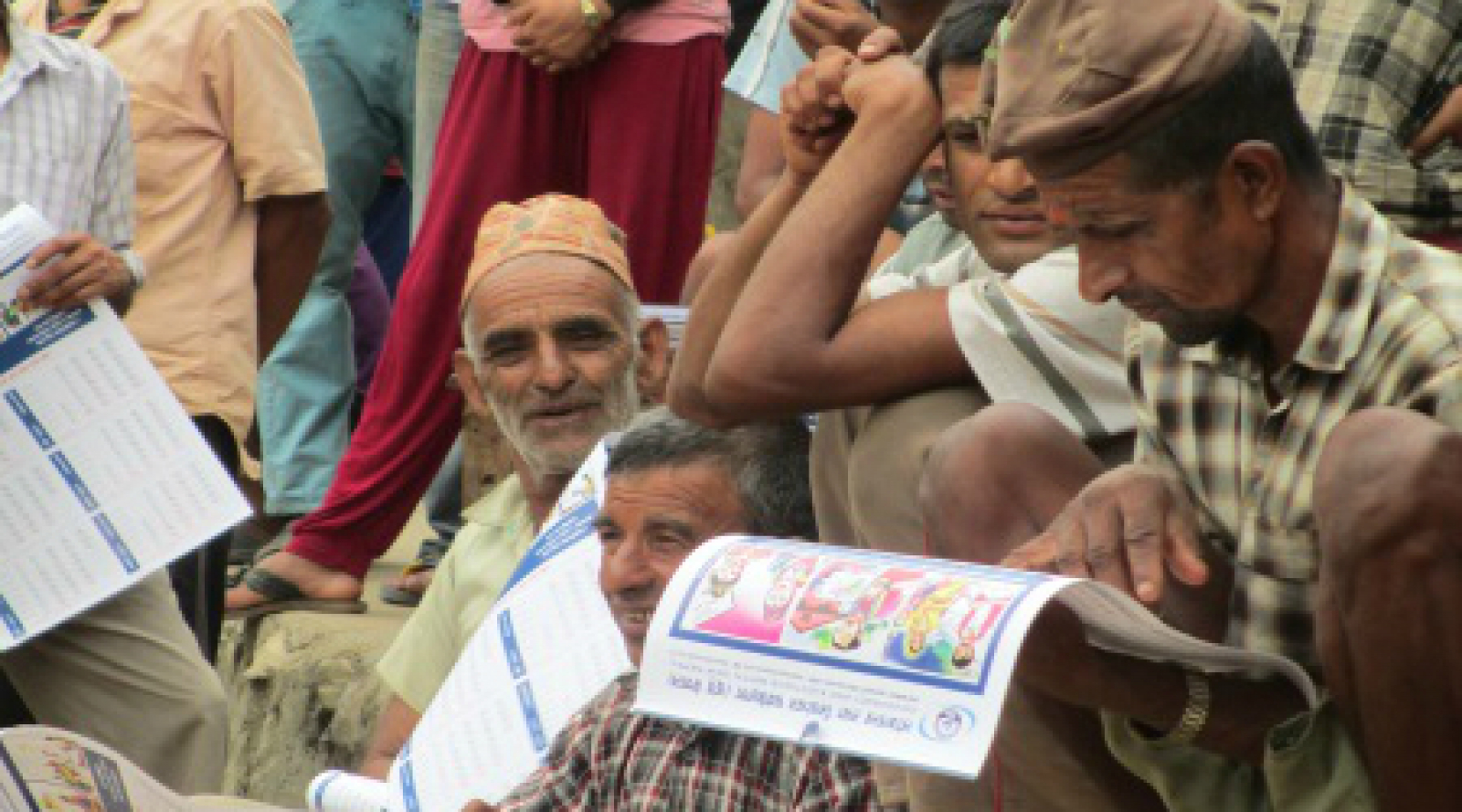
SHARE
In remote and mountainous regions of Nepal, news comes slowly and it can take days to travel short distances. These conditions pose numerous challenges, including making voting problematic, both because it’s difficult to register and because voter education is limited.
Take for example the rural Baitadi district in the far western corner of Nepal. In the November 2013 Constituent Assembly (CA) elections, Baitadi had the highest percentage of invalid votes, five points above Nepal’s national average. And in Lalitpur, a district containing both metropolitan areas to the north and remote regions to the south, only 56 percent of eligible voters are registered to vote - the second lowest percentage in Nepal.
The geographic challenges are producing apathy and disinterest, leading to lower voter turnout and less participation in the democratic process.
To overcome some of these challenges, the election observation group Democracy and Elections Watch Nepal (DEW-Nepal), with the support of NDI, organized a targeted voter registration information campaign earlier this year to increase registration. The campaign focused on five districts -- Baitadi, Jhapa, Kaski, Lalitpur and Sunsari -- that were selected because they had high levels of invalid votes and low registration in last year’s Constituent Assembly elections.
The campaign was carried out in three phases. Organizers and volunteers first conducted a baseline survey last May using Android-based mobile phone technology to collect voter registration numbers and gauge the public’s understanding of the electoral process. According to the survey, 40.5 percent of respondents were unfamiliar with how to register to vote.
Based on those findings, the campaign organized outreach events over the summer in rural communities across the five districts to educate the public on registration procedures. Organizers handed out calendars with information on the voter registration process and requirements to register. The campaign also organized street dramas and dohori music (a Nepali musical style) that featured actors and musicians stressing the importance of voting and teaching their audiences how to register. Overall, community events were carried out in 157 locations throughout the five targeted districts, reaching approximately 15,000 people.
“Through this program, we are taking the information directly to the people in the rural areas which are relatively inaccessible,” said Saru Adhikari, a DEW-Nepal Kaski district volunteer. “This is greatly appreciated by the public and their excitement energizes our volunteers.”
Following the events, the campaign conducted a survey using the same mobile phone technology to assess the impact of the campaign. It found that a majority of respondents said they now value the importance of voter registration and understand the importance of voting. They also said they have a better understanding of the voter registration process, including eligibility requirements, where and when to register, and materials needed to register. Nearly all of the respondents said they found the program useful and that it should continue.
With the next round of local elections in Nepal’s near future, NDI, DEW-Nepal and partners view voter education programs as key to bringing democratic participation within reach for Nepal’s remote regions.





